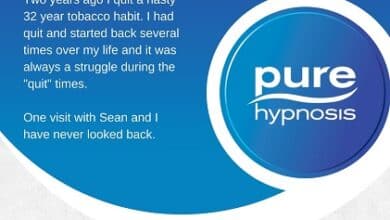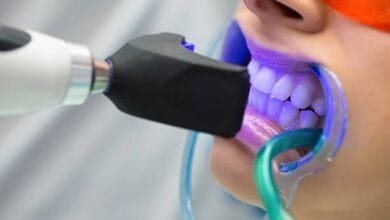How Massage Therapy Reduces Anxiety and Depression

Two of the most prevalent mental health conditions affecting millions of individuals globally are anxiety and depression. These circumstances may be overpowering, resulting in enduring depressive, anxious, and hopeless sentiments. Even though psychotherapy and medicine are suitable traditional treatments, many people look for complementary therapies to improve their mental health. One such method that has shown great potential in reducing anxiety and depression is massage 출장마사지 therapy. In this blog, we’ll look at the advantages of massage treatment, how it helps treat certain illnesses, and why it’s a great complement to a comprehensive mental health regimen.
Knowledge of Anxiety and Depression
Prior to exploring the advantages of massage treatment, it is critical to comprehend the physiological and psychological effects of sadness and anxiety.
Depression is typified by lingering melancholy, weariness, changes in eating or sleep patterns, and disinterest in routine activities. It’s a complicated illness that impacts mental and physical wellbeing and frequently sets off a vicious cycle of unfavourable attitudes and actions.
Conversely, anxiety is characterized by excessive worry, apprehension, and trepidation. Physical symptoms, including tense muscles, restlessness, and elevated heart rate, may result from it. Persistent anxiety can cause problems in day-to-day living, panic episodes, and social isolation.
It can be difficult for people to feel at ease or relaxed because of the frequent connections between the two illnesses and the potential for overlapping symptoms. This is where massage therapy comes into play, providing a safe and all-natural means of managing the symptoms connected to various mental health issues.
Massage Therapy’s Impact on Mental Health
Massage therapy is a holistic approach that affects the body, mind, and emotions in addition to being a physical treatment. Massage treatment eases physical stress, induces relaxation, and releases endogenous chemicals that enhance mood and emotional health by working on the body’s soft tissues and muscles. This is how it operates:
- Activating the Parasympathetic Nervous System: The sympathetic nervous system regulates the “fight or flight” reaction that your body goes through when you’re stressed or concerned. The parasympathetic nerve system, sometimes referred to as the “rest and digest” system, is stimulated by massage therapy, which aids in calming the body and mind.
- Releasing serotonin and endorphins: Massage promotes the release of serotonin, a neurotransmitter important in mood regulation, and endorphins, the body’s natural analgesics. Elevated concentrations of these molecules encourage relaxation and a sense of wellbeing while reducing the signs and symptoms of anxiety and depression.
- Cutting Down on Cortisol: The stress hormone cortisol is linked to elevated levels of anxiety and depression. Studies have demonstrated that massage therapy dramatically reduces cortisol levels, which makes people feel more at ease and in balance.
The Effects of Physical Relaxation on Mental Health
The immediate physical relaxation that massage treatment offers has a direct impact on mental health. Your muscles frequently stiffen up when you’re nervous or depressed, which can cause stiffness, headaches, and discomfort. This strain on the body can intensify emotional stress and lead to a vicious cycle of pain and anxiety.
Massage treatment relieves pain and stress in the muscles by working on soft tissues and providing pressure to the affected areas. Particularly useful for calming the body and easing tense muscles are massage techniques like Swedish and deep tissue massage. The body communicates to the brain that it is safe and secure when the muscles relax, which aids in the mind’s transition from an alert and stressed-out state to one of peace and relaxation. People who are under a lot of stress on a regular basis may find this physical release particularly helpful since it gives them a sense of comfort and relief, which lifts their spirits.
Establishing a Secure and Helpful Environment
Making a space that is secure and encouraging is one of the most critical components of massage treatment. Sensational security and care can have a profound impact on the emotional health of those suffering from depression or anxiety. The calm environment, soft lighting, and relaxing music all contribute to the creation of a space where people may forget their problems and concentrate on the here and now during a massage.
Another important aspect of massage treatment is the physical touch component. Physical contact can be reassuring and help people feel less alone or depressed. A caring environment like massage therapy helps people feel supported and reestablish a connection with their bodies. This is especially important for people who may suffer from depression-related feelings of alienation or low self-esteem.
The Science of Massage Therapy for Anxiety and Depression
Research from scientific studies demonstrates how well massage treatment works to lessen anxiety and depressive symptoms. According to research, massage treatment can raise serotonin and dopamine levels by roughly 28% and 31%, respectively, and decrease cortisol levels by up to 31%. These hormonal shifts correct the chemical imbalances frequently associated with anxiety and sadness, regulating mood and fostering a sense of wellbeing in the process.
Additionally, consistent massage therapy has been connected to better sleep, which is crucial for mental wellness. A typical sign of both anxiety and depression is poor sleep, which can exacerbate the illnesses by leading to weariness, irritation, and a general deterioration in mood. Methods that mix massage with essential oils, such as chamomile and lavender, like aromatherapy massage, work exceptionally well to promote relaxation and sleep. Better sleep allows people’s bodies and minds to rest and regenerate, which promotes a happier and more balanced state of being.
Improving Body Awareness and Mindfulness
People suffering from depression and anxiety frequently experience detachment and alienation from the present moment as a result of their disconnection from their bodies. Through the improvement of bodily awareness and mindfulness, massage therapy aids in bridging this gap. People are advised to concentrate on their breathing, how the therapist touches them, and how relaxed they feel physically during a massage.
This emphasis on the here and now encourages mindfulness, a technique that has been shown to lessen anxiety and depressive symptoms. By keeping people centred on the “here and now” rather than on regrets from the past or fears about the future, mindfulness helps people stop the cycle of negative thinking. Massage therapy’s incorporation of mindfulness and physical relaxation promotes a holistic approach to mental wellness by assisting clients in rediscovering their sense of body and environment.
The Extended Advantages of Consistent Massage Therapy
Even though a single massage session can provide instant comfort, frequent massage therapy has far more significant long-term advantages. Regular massage therapy sessions lessen the frequency and severity of depression or anxious episodes by assisting the body and mind in better adjusting to stress. Weekly, biweekly, or monthly routines help people create a sense of stability and wellbeing that is beneficial to their general mental health.
Regular massage treatment over time can result in:
- Better Mood Stability: The regular release of dopamine, serotonin, and endorphins helps control mood and lessens the intensity of anxious and depressive episodes.
- Enhanced Resilience to Stress: Massage treatment helps people develop resilience by teaching their bodies to relax, which makes it simpler to handle stressors without losing control.
- Improved Techniques for Self-Care: Regular massage therapy sessions inspire people to put their health first and take up other beneficial self-care habits like mindfulness, exercise, and a balanced diet.
Selecting the Ideal Massage Treatment for Yourself
Massage treatment comes in a variety of forms, each with unique advantages for treating anxiety and depression. Here are some alternatives to think about:
- Swedish massage: Long, smooth strokes are used in this gentle approach that targets the entire body to promote calmness and reduce stress.
- Deep Tissue Massage: This type of massage is excellent for people who have chronic pain and tension since it works on the deeper levels of muscles, alleviating stress and stiffness.
- Shiatsu massage: A Japanese method of relieving stress and reestablishing energy balance that involves applying pressure with the fingers to certain body spots.
- Aromatherapy massage: This type of massage uses essential oils in addition to massage to promote emotional balance and relaxation. It is beneficial for people who have trouble sleeping due to anxiety or sadness.
Speaking with a licensed massage therapist about your requirements and worries will help customize the session to your unique 양산출장마사지 mental health objectives and guarantee that you get the best care possible for your overall wellbeing.
In summary
Although treating depression and anxiety can be difficult, massage therapy is a potent, all-natural method of reducing symptoms and improving general well-being. Massage therapy treats the physical and emotional components of these illnesses by lowering cortisol levels, releasing feel-good chemicals, and fostering a safe, supportive environment.
Your attitude, level of relaxation, and mental clarity can all significantly improve if you include massage therapy in your wellness regimen. It offers a route toward improved mental health and resilience and is a proactive, all-encompassing strategy that complements conventional therapies. The first step to a more balanced, satisfying life may be to investigate massage therapy as part of a complete care plan if you or someone you love is experiencing anxiety or depression.




